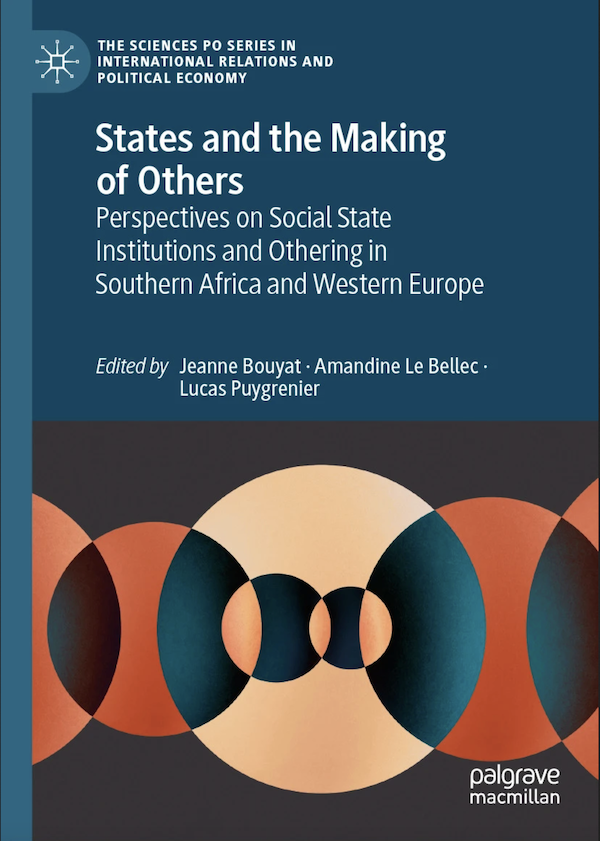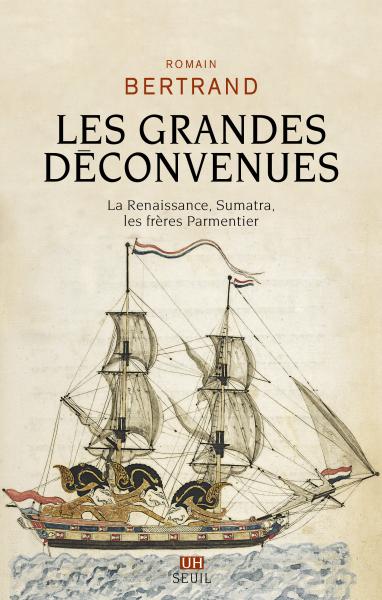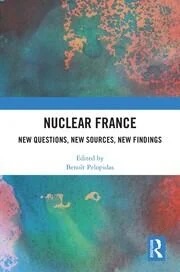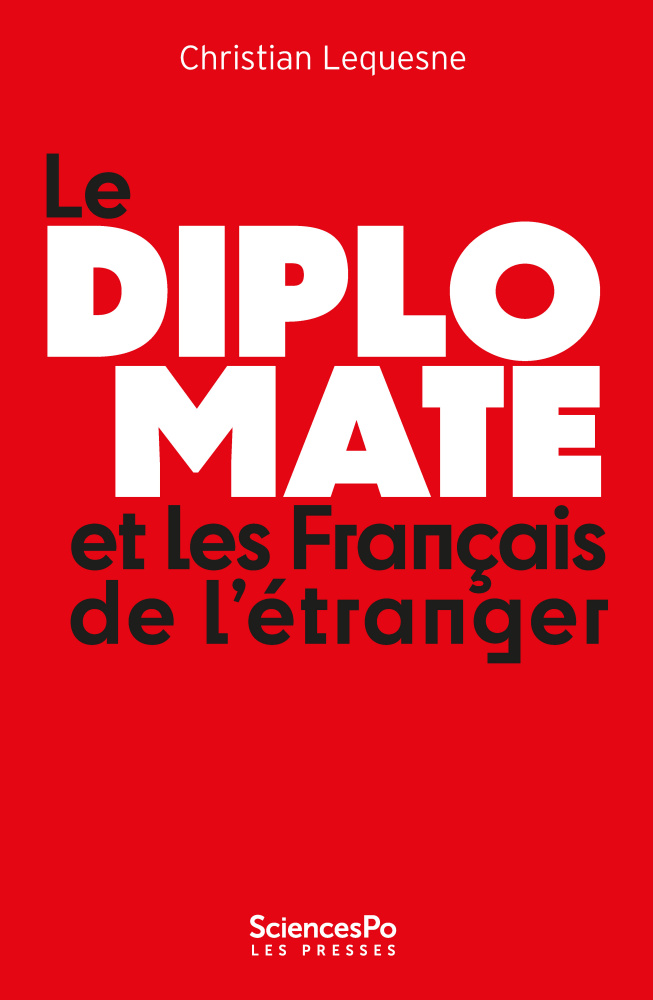Archives - Regards sur nos publications
 © Daguerréotype, 1855, CC0 Public Domain Designation, Chicago Art Institute.
© Daguerréotype, 1855, CC0 Public Domain Designation, Chicago Art Institute.Cette page présente par ordre de parution les débats et les analyses suscités par les publications scientifiques des chercheur-e-s du CERI au cours du trimestre.
Vous y trouverez, entre autres, des entretiens, vidéos, podcasts et comptes rendus qui contribuent à prolonger et à enrichir la réflexion développée dans ces travaux.
Toutes ces ressources sont librement accessibles en ligne, sauf les recensions parues dans des revues à comité de lecture.
Au-delà de cette page,
la liste complète des publications scientifiques.

La bienveillance dans les relations internationales. Un essai politique
Paris, CNRS Éditions, 2022.
En faisant de la bienveillance une composante des relations internationales, ce livre propose un regard plus sensible sur notre temps et offre une boîte à outils pour l’action politique à venir. Car la bienveillance ne rime pas qu’avec mièvrerie et bons sentiments. Et elle ne se cantonne ni dans la neutralité ni dans l’hégémonie cultivée par certains États. Disposition morale, elle se retrouve dans plusieurs conduites diplomatiques, des commémorations aux négociations. En tant que pratique, elle promeut la non-nuisance, la tempérance ou encore l’attention à l’égard des vulnérables. En témoigne la modération dans l’usage de la force en droit international, la protection des biens publics mondiaux, ou l’hospitalité d’individus ordinaires envers les migrants. Mais elle est surtout au cœur d’un projet politique global ancien, le solidarisme de Bourgeois, prix Nobel de la paix en 1920. Car une solidarité naturelle, de fait, nous lie tous les uns aux autres, nations comme individus. Reconnaître les effets de ces interdépendances est crucial pour l’humanité tout entière. Explorer et décrire de manière lucide ces formes de bienveillance est une nécessité. Un geste qui ouvre des voies pour réinterpréter le passé, mais aussi pour agir au sein de notre monde, eu égard aux menaces et aux risques qui nous affectent, des pandémies aux changements climatiques.
Autour de la publication
Entretiens du CERI
28 mars 2022
For a Sensitive Experience of International Relations. Benevolence, According to Frédéric Ramel
Entretien avec Frédéric Ramel par Miriam Périer
08 mars 2022
Pour une expérience sensible des relations internationales. La bienveillance, selon Frédéric Ramel
Entretien avec Frédéric Ramel par Miriam Périer
Médias
23 mars 2025
L’espérance, une vertu politique
Débat avec Frédéric Ramel, par Régis Burnet, KTO
13 octobre 2024
"La promotion de la bienveillance dans l’espace mondial mérite d’être défendue"
Entretien avec Frédéric Ramel, par Aude Lechrist, France 24
19 mars 2022
Coopération et bienveillance dans les relations internationales
Débat avec Guillaume Devin et Frédéric Ramel, par Marie-France Chatin, RFI
28 février 2022
De la bienveillance dans les relations internationales
Article de Frédéric Ramel dans Le Grand Continent
Recensions
15 mars 2022
La bienveillance dans les relations internationales : un compte rendu
Klaus-Gerd Giesen, Distinguos
14 février 2022
Le monde dans la nasse d'une colère généralisée?
Article de Manouk BORZAKIAN, Gilles FUMEY, Renaud DUTERME, Nashidil ROUIAI dans Le Club Médiapart
Podcasts
27 mai 2022
La bienveillance, un outil des relations internationales?
Entretien avec Frédéric Ramel, par Hugo Billard, Planisphères, Radio Notre Dame
7 mai 2022
Vers un monde solidaire
Entretien avec Frédéric Ramel, par Emmanuel Taieb, Fréquence protestante
28 avril 2022
Fréderic Ramel est l’invité de Philanthropie
Entretien avec Frédéric Ramel, par Perrine Simon-Nahum, RCJ
27 mars 2022
Relations internationales bienveillantes
Entretien avec Frédéric Ramel, par Franco Nuovo, Dessine-moi un dimanche (08h28), Radio Canada
14 mars 2021
Entrevue avec Frédéric Ramel : Quelle place pour la bienveillance dans le monde?
Intervention dans l'émission Dessine-moi un dimanche, Radio-Canada

Bertrand Badie
L'Art de la paix. Neuf vertus a honorer et autant de conditions à établir
Paris, Flammarion, 2024, 256 p.
Sun Tzu, général chinois du VIᵉ siècle avant Jésus-Christ, a écrit un Art de la guerre qui aujourd’hui encore suscite l’intérêt de très nombreux lecteurs. Tandis que la guerre refait irruption en Europe et au Proche-Orient, si l’on étudiait comment faire la paix au XXIᵉ siècle ? C’est à cette mission que Bertrand Badie, le plus philosophe des professeurs en relations internationales, s’est attelé dans cet ouvrage à la portée universelle. La paix a changé de nature. Longtemps cantonnée à l’état de non-guerre, associée à des périodes de trêve obtenues par transactions géographiques, économiques, dynastiques, elle ne peut désormais être établie qu’à la condition d’être redéfinie, pensée comme un tout, considérée à l’heure de la mondialisation et des nouvelles menaces, notamment climatiques, qui pèsent sur notre planète. S’appuyant sur quantité d’exemples historiques ou contemporains, Bertrand Badie dresse des perspectives : faire primer le social sur le rapport de force, chercher à comprendre l’Autre, trouver les justes normes, combler ce qui nous sépare… Revisitant des références essentielles d’Aristote à Kant, il propose neuf vertus à mettre en œuvre pour faire la paix.
Autour de la publication
Extraits
06 octobre 2024
Pourquoi la paix est un art autant que la guerre
Extraits de l'introduction, The Conversation
Médias
02 octobre 2024
« L'art de la paix » - 4 questions à Bertrand Badie
Entretien avec Bertrand Badie, par Pascal Boniface, Mediapart
08 octobre 2024
L'invité de Points de Vue
Entretien avec Bertrand Badie, par Vincent Roux, Le Figaro
26 octobre 2024
La parole aux auteurs: Kako Nubukpo et Bertrand Badie
Entretien avec Bertrand Badie, par Emmanuel Lechypre, BFMTV
23 novembre 2024
"La paix couvre un champ d'action qui va au-delà du seul secteur de la guerre"
Entretien avec Bertrand Badie, par Aude Lechrist, France 24
30 novembre 2024
Et la paix dans tout ça ?
Entretien avec Bertrand Badie, par Marie-France Chatin, RFI
Recensions
27 octobre 2024
Livre : Bertrand Badie en quête de paix
Dominique Vidal, Mediapart
02 novembre 2024
Agir pour la paix dans un monde complexe et globalisé
Francis Wurtz, L'Humanité

ID Wars in Côte d'Ivoire. A Political Ethnography of Identification and Citizenship
Oxford University Press, 2024, 352 p.
Identity documents provide rights to citizenship and social inclusion. They can also generate violence and conflicts. This book explores Côte d'Ivoire's 'ID war' as a paradigmatic case of a citizenship crisis, centered on the access to national identity cards and certificates. Using ethnographic and historical data, it shows how the documentary struggle for citizenship has continued in the post-crisis reconstruction, affecting the new policies of identification and registration based upon biometrics and new technologies. It describes how the latter have been overturned and reframed by the Ivorian society. Focusing on the production and negotiation of legal identities, the book delves into the social life of IDs and biometrics and describes the clandestine world of the 'margouillats', the corrupt brokers of the civil registry, the forms of documentary falsification aimed at taming legal and bureaucratic principles with the requirements of ordinary social life, the hidden practices of state apparatuses of identification and the local machinery of biometric registration, and the self-made censuses and systems of identification used by minorities seeking recognition in the public space. Through these ethnographic descriptions with a specific approach 'from below', the book shows that actual reforms supposed to depoliticize - and in the case of biometric technologies, to de-socialize - identification do not erase its constitutively political dimension. From a comparative perspective, the case of Côte d'Ivoire reveals the unprecedented revenge of the documentary state on the biometric state and encourages us to rethink their dyadic opposition in a more complex triangulation of identification, debt and recognition.
Autour de la publication
Entretiens du CERI
27 septembre 2024
ID Wars in Côte d'Ivoire
Interview with Richard Banégas and Armando Cutolo, by Miriam Périer

Une après-midi à Shanghai. L'enfance et la question anthropologique de l'âge
Genève, Les Éditions ies, 2024, 288 pages.
L’enquête a donc duré trois ans et non ‘une après-midi’ : mais je voulais, avec ce titre, garder quelque chose de la temporalité de ces longs moments à traîner avec les enfants. Et, on l’aura compris, ce n’est pas le Shanghai que l’on voit d’habitude, ce n’est pas une après-midi à faire du shopping sur le Bund dont il s’agit ici. C’est plutôt le Shanghai des ‘mauvaises herbes’ de Lu Xun, celui des habitats dégradés entre deux zones en rénovation, là où vivaient les enfants sur lesquels j’enquêtais, venus des campagnes chinoises pour accompagner leurs parents en quête de travail. C’est là que l’on suivra la trame ordinaire de ces vies petites, au gré des rencontres et des lieux de l’ethnographie qui organisent le parcours de l’enquête et du livre. (…) Le souci de (r)ouvrir la discussion de l’enfance en sciences sociales est soigneusement entremêlé dans ces déambulations, comme un livre dans un autre livre, dont on peut suivre le fil à travers le système des sous-titres. Chaque chapitre est ainsi l’occasion d’un arrêt sur un moment clé de ce qui pourrait être une réflexion sur l’enfance ou, plutôt, sur la question anthropologique de l’âge, abordée à partir de l’enfance.
Autour de la publication
Entretiens du CERI
06 septembre 2024
Les sciences sociales et l'expérience de l'enfance pauvre
Entretien avec Camille Salgues, par Corinne Deloy

Jeanne Bouyat, Amandine Le Bellec, Lucas Puygrenier (eds)
New York, Palgrave Macmillan, 2024, 275 p.
This volume offers a unique interdisciplinary and comparative perspective on contemporary processes of othering by state institutions in relation to dynamics of racism, xenophobia, sexism, homo-transphobia, as well as ethnic- and class-based discriminations. It focuses on eight original case studies empirically grounded in various domains of the ‘social state’, in Southern African and Western European contexts: the education and health care systems, the regulation of work and of procreation rights, and institutions in charge of granting asylum. The authors provide key insights on how states produce Others, and on how othering contributes in turn to the process of state formation and the politicization of public action.
Autour de la publication
Entretiens du CERI
29 Août 2024
From the State to the Other and the Other to the State.
Interview with Jeanne Bouyat, Amandine Le Bellec & Lucas Puygrenier by Miriam Périer

Romain Bertrand
Les Grandes Déconvenues. La Renaissance, Sumatra, les frères Parmentier
Paris, Seuil (L'Univers historique), 2024, 384 p.
On dit que la France, au XVIe siècle, a manqué son rendez-vous avec le Monde, puisqu’elle n’aurait pris aucune part à l’épopée de l’exploration des sociétés lointaines – flirtant avec le Brésil, mais boudant l’Asie. Pourtant, deux capitaines dieppois, Jean et Raoul Parmentier, conduisent jusqu’à l’île de Sumatra, en 1529, deux nefs de fort tonnage. Ils en ramènent des plaies, des bosses et un peu de poivre. Aujourd’hui oubliée, leur navigation fut érigée au XIXe siècle en preuve incontestable d’une contribution française glorieuse à la geste des Grandes découvertes. C’est toute la Renaissance occidentale qui aurait débarqué, sous pavillon tricolore, en Insulinde. La fable est flatteuse pour l’idée que nous nous sommes longtemps faite de nous-mêmes comme de pionniers, voire de missionnaires de la « modernité ». Il n’est pas certain qu’elle résiste à l’examen. Menée en archives et dans les méandres des chroniques, l’enquête oblige à s’intéresser d’un même mouvement au monde des marins normands et à celui des négociants malais, à la cour de François Ier et à celle du sultan de Tiku, à la poésie mariale du « Puy » de Rouen et à celle des maîtres de mystique musulmans. Ce qui se joue alors le long du troisième parallèle, lorsque les Dieppois font relâche à Sumatra, ne se comprend qu’à condition de rouvrir les portes de la comparaison – entre l’Europe et l’Asie du Sud-Est aussi bien qu’entre le savoir des « gens de mer » et celui des érudits. En nous aidant à contempler, défardées, nos grandes déconvenues, cette traversée nous invite à penser la « modernité » au pluriel et la Renaissance au conditionnel.
Autour de la publication
Entretiens du CERI
10 septembre 2024
Sixteenth Century Expeditions and Modernity
Interview with Romain Bertrand, by Josefina Gubbins
10 juillet 2024
Repenser la modernité pluriel avec Romain Bertrand
Entretien avec Romain Bertrand, par Josefina Gubbins
Podcast
10 avril 2024
La Renaissance, Sumatra, les frères Parmentier
Entretien avec Romain Bertrand, par Luc Daireaux, Chemins d'histoire
Recension
4 mars 2024
21 livres à lire en mars 2024
Florian Louis, Le Grand Continent
Extrait de l'ouvrage
Lire l'extrait

François Bafoil et Paul Zawadzki (dir.)
Politiques de la destructivité. Sciences sociales et psychanalyse
Paris, Hermann, 2024, 254 p.
Le séminaire dont est issu cet ouvrage est né du constat de l’affaissement du dialogue entre les sciences sociales et la psychanalyse qui avait pourtant été vif et fécond en France jusqu’aux années 1980. Les auteurs du présent livre se proposent d’en reprendre le fil, aujourd’hui que la guerre est revenue en force sur le sol européen tandis qu’elle ne cesse de se poursuivre inlassablement dans d’autres régions du monde. Plus que jamais s’impose la réflexion sur le lien entre la pulsion de destruction et le social pour penser la place des institutions dans leur rapport à leurs soubassements psychologiques. Selon quelles modalités est-il possible d’articuler la compréhension sociologique et l’interprétation psychanalytique, quelles en sont les limites et les apports respectifs ? Après avoir discuté les catégories freudiennes de la horde primitive, de l’Œdipe, de la Masse et de la liberté, les réflexions des auteurs se confrontent plus directement à l’expérience historique de la guerre, du viol et du nationalisme. Entre universalité du psychisme, compulsion pulsionnelle et expériences historiques toujours spécifiques, quelle place conférer à l’inconscient, collectif ou individuel ?
Autour de la publication
Podcasts
Sciences Sociales et Psychanalyse
Cycle de séminaires du groupe de recherche "Sciences sociales et psychanalyse"
Entretiens du CERI
26 mai 2024
Renouer le dialogue entre sciences sociales et psychanalyse.
Entretien avec François Bafoil et Paul Zawadski, par Miriam Périer
Renewing the dialogue between the social sciences and psychoanalysis.
Interview with François Bafoil and Paul Zawadski, by Miriam Périer

Benoît Pélopidas (dir.)
Routledge, 2024, 186 p.
This book offers the first non-official history of French nuclear policies which goes beyond the divide between nuclear weapons and nuclear energy policies. It addresses the sizing of France’s nuclear forces, technological assistance to countries with nuclear weapons programs, uranium prospection, nuclear testing, its health effects and protests against it, as well as plans to prevent and manage accidents in nuclear power plants. It is based on new questions and new sources from France and abroad. The chapters in this volume show how independent and interdisciplinary scholarship free from conflicts of interests can uniquely advance our understanding of nuclear history and politics. This is the case because it does not treat the categories and judgments of official discourse as neutral starting points of the analysis. This volume is based on untapped primary sources from France, the UK, the US, India, South Africa and Iran, on a new assessment of the health consequences of French nuclear testing in Polynesia thanks to a modern atmospheric particle transport code coupled with historical weather data, open-source information about radioactive debris (“mushroom”) clouds, as well as data on the composition and particle sizes of the fallout; and on new survey data about French knowledge of and attitudes towards nuclear weapons and nuclear energy. They show notably that the first generation of French nuclear forces lacked technical credibility despite reliance on outside help. Several French officials knew this, as did France's allies and adversaries. Moreover, French strategic collaborations associated to nuclear programs extended to India and South Africa; nuclear safety regulations changed fundamentally after the Cold War, and approximately 110,000 people, i.e. 90% of the French Polynesian population in the 1970s, could have received doses that would qualify them for compensation according to French law.
Autour de la publication
Entretiens du CERI
28 juin 2024
Pour une recherche indépendante sur le nucléaire
Entretien avec Benoît Pelopidas, par Miriam Périer

Le diplomate et les Français de l'étranger. Comprendre les pratiques de l'État envers sa diaspora
Paris, Presses de Sciences Po, 2024, 176 p.
Binationaux, expatriés, actifs internationalisés, retraités, étudiants et, de plus en plus, e-travailleurs, les quelque 2,5 millions de citoyens français vivant à l'étranger sont loin de constituer une communauté homogène. Par le biais de son réseau diplomatique et consulaire, l’État cherche à construire une relation avec cette diaspora en mettant à sa disposition des services et des institutions (lycée français, système de protection sociale, chambre de commerce, mais aussi élus consulaires et parlementaires) qui lui permettent de ne pas renoncer au lien avec le territoire d’origine. Enquête inédite de science politique menée sur trois continents, l’ouvrage met au jour une pratique diplomatique de la France qui reste largement régalienne : l’État continue de considérer ses ressortissants à l’étranger comme ses protégés, mais peine davantage à faire d’eux une ressource productive au service d’une véritable stratégie d’influence.
Autour de la publication
Podcast
04 juin 2024
Présentation de l'ouvrage
Avec Christian Lequesne, Sylvain Beck, Samantha Cazebonne et Thomas Lacroix
Entretien
16 juin 2024
Comment s’organisent les relations entre le diplomate et les Français de l’étranger ?
Entretien avec Christian Lequesne, par Pierre Verluise, Diploweb

The Transnational State. Governing Migratory Circulations
Cham, Palgrave Macmillan, 2024, 188 p.
This work in two parts examines the relations between transnational societies and states. The second volume of this work contends that current policies meant to control or enhance transnational flows have led to the emergence of a transnational policy apparatus coined the transnational state. This book proposes an innovative conceptual framework to grasp the transformations of the contemporary state in both sending and receiving countries. It shows how states expand beyond national territorial limits by reaching out to migrants where they are. In response to the migrants’ endeavours to circumvent the constrains imposed by selective migration policies, public authorities expand the reach of their control beyond (externalisation), within (internalisation) and at (expansion) borders. A totalitarian temptation seems to have seized contemporary state bureaucracies, affecting the very nature of borders and societies. The core argument of this research is that the development of the transnational state is not random. It is a process shaping and shaped by the structures of the transnational society.
Autour de la publication
Entretiens du CERI
03 juin 2024
What is the Transnational State?
Interview with Thomas Lacroix, by Miriam Périer










